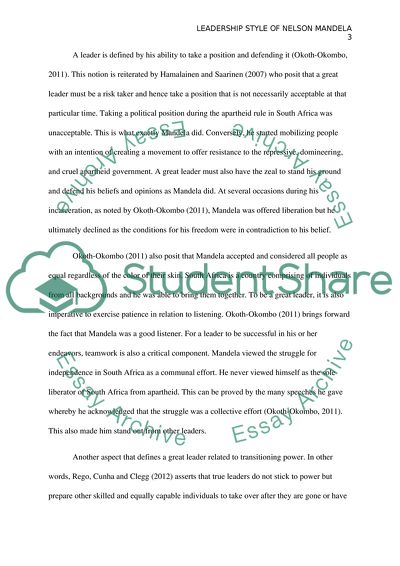Cite this document
(Leadership Style of Nelson Mandela Literature review Example | Topics and Well Written Essays - 1500 words - 5, n.d.)
Leadership Style of Nelson Mandela Literature review Example | Topics and Well Written Essays - 1500 words - 5. https://studentshare.org/politics/1846736-leadership
Leadership Style of Nelson Mandela Literature review Example | Topics and Well Written Essays - 1500 words - 5. https://studentshare.org/politics/1846736-leadership
(Leadership Style of Nelson Mandela Literature Review Example | Topics and Well Written Essays - 1500 Words - 5)
Leadership Style of Nelson Mandela Literature Review Example | Topics and Well Written Essays - 1500 Words - 5. https://studentshare.org/politics/1846736-leadership.
Leadership Style of Nelson Mandela Literature Review Example | Topics and Well Written Essays - 1500 Words - 5. https://studentshare.org/politics/1846736-leadership.
“Leadership Style of Nelson Mandela Literature Review Example | Topics and Well Written Essays - 1500 Words - 5”. https://studentshare.org/politics/1846736-leadership.


